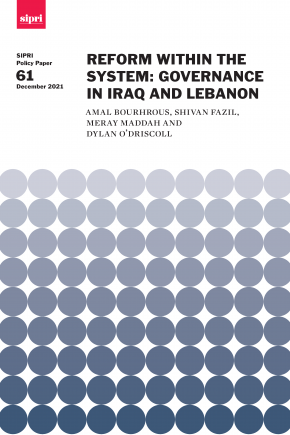Reform within the System: Governance in Iraq and Lebanon
The 2019 protests in Iraq and Lebanon revealed a widespread dissatisfaction with political systems based on sectarian and ethnosectarian power-sharing, which many saw as being responsible for a host of governance failures. This has given rise to demands for a wholesale change of the political systems in both countries. However, the dismantlement of identity-based power-sharing systems is a remote prospect—they are deeply entrenched, and change would depend on action from the very political elites that benefit from them.
Instead, this SIPRI Policy Paper explores what can be done in the short term to address some of the key challenges confronting Iraq and Lebanon. In contexts where the political elites’ grip on the political system remains tight, every possible opportunity for reform must be grasped.
1. Introduction
2. Understanding the governance systems
3. Socio-economic challenges and the state of public services
4. Why is reform so difficult to achieve?
5. Opportunities for reform in complex contexts
6. Conclusions
7. Recommendations




